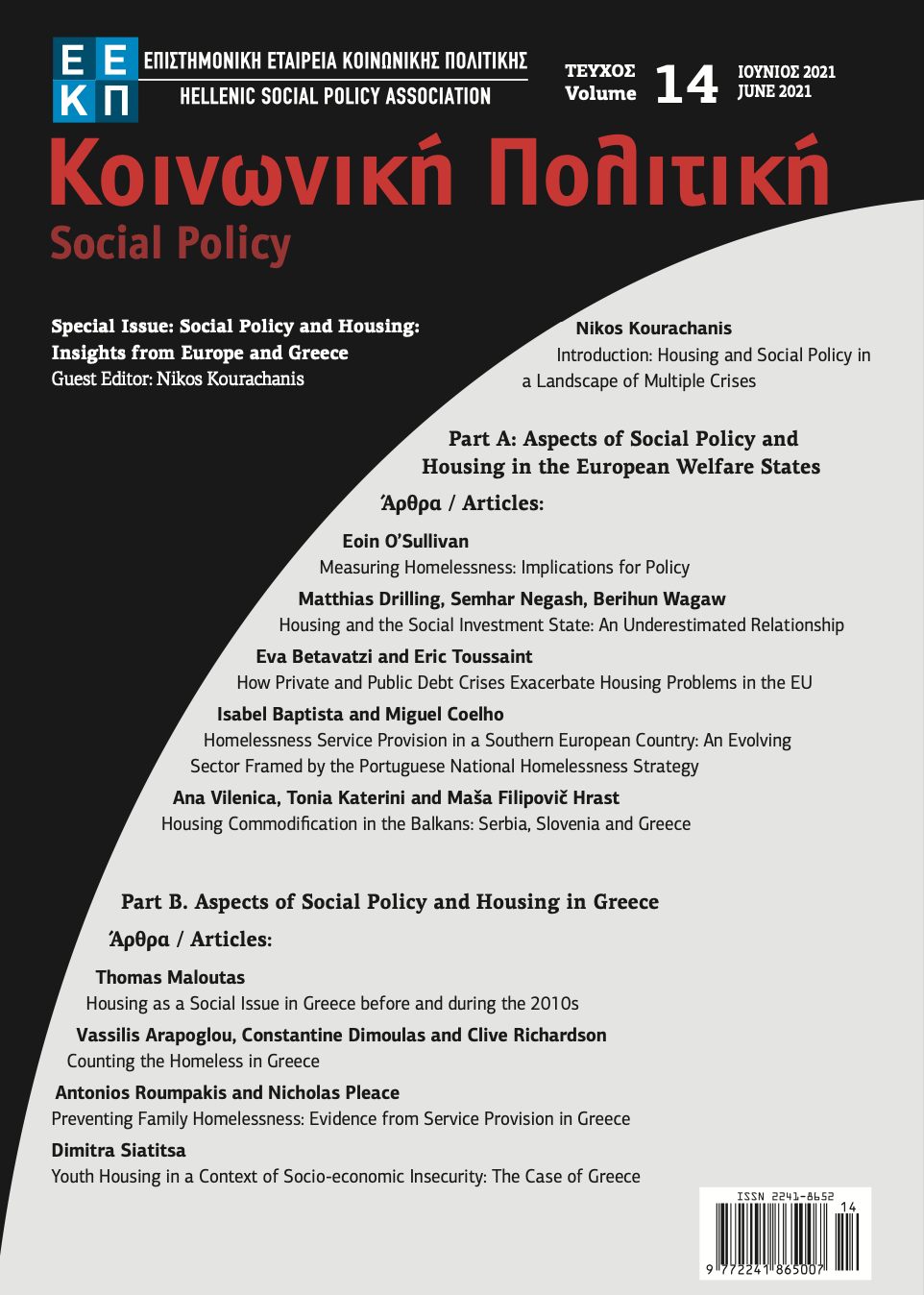Youth Housing in a Context of Socio-economic Insecurity: The Case of Greece
Abstract
The paper discusses the issue of youth housing in Greece, in a context of permanent insecurity and instability, due to the precarisation of labour and the ongoing “crises’’ conjuncture. Youth housing problems in Greece are usually contained by the Greek familial model of welfare, where unemployed, low-waged and vulnerable youth depend on family networks for providing shelter. In this context, the difficulties faced by youth in transition in their effort to access independent housing remain rather underexplored. Although strongly conditioned by cultural norms and family housing strategies, youth housing precarity is manifested through the inevitable prolonged stay in, or return to the parental residence, difficulties in accessing affordable housing, housing cost overburden, lower housing standards and overcrowding. The paper provides an overview of main issues discussed in the European and Greek literature, describes key dimensions of youth housing in Greece and sets the framework for further research.
Article Details
- Zitationsvorschlag
-
Siatista, D. (2021). Youth Housing in a Context of Socio-economic Insecurity: The Case of Greece. Κοινωνική Πολιτική, 14, 149–162. Abgerufen von https://ejournals.epublishing.ekt.gr/index.php/eekp/article/view/32447
- Ausgabe
- Bd. 14 (2021)
- Rubrik
- Άρθρα

Dieses Werk steht unter der Lizenz Creative Commons Namensnennung 4.0 International.
Οι συγγραφείς των άρθρων που δημοσιεύονται στο περιοδικό διατηρούν τα δικαιώματα πνευματικής ιδιοκτησίας επί των άρθρων τους, δίνοντας στο περιοδικό το δικαίωμα της πρώτης δημοσίευσης. Άρθρα που δημοσιεύονται στο περιοδικό διατίθενται με άδεια Creative Commons 4.0 και σύμφωνα με την άδεια μπορούν να χρησιμοποιούνται ελεύθερα, με αναφορά στο/στη συγγραφέα και στην πρώτη δημοσίευση για μη κερδοσκοπικούς σκοπούς και με δικαίωμα τροποποίησης μόνον με παρόμοια διανομή (αν αναμείξετε, τροποποιήσετε, ή δημιουργήσετε πάνω στο υλικό, πρέπει να διανείμετε τις δικές σας συνεισφορές υπό την ίδια άδεια όπως και το πρωτότυπο).



